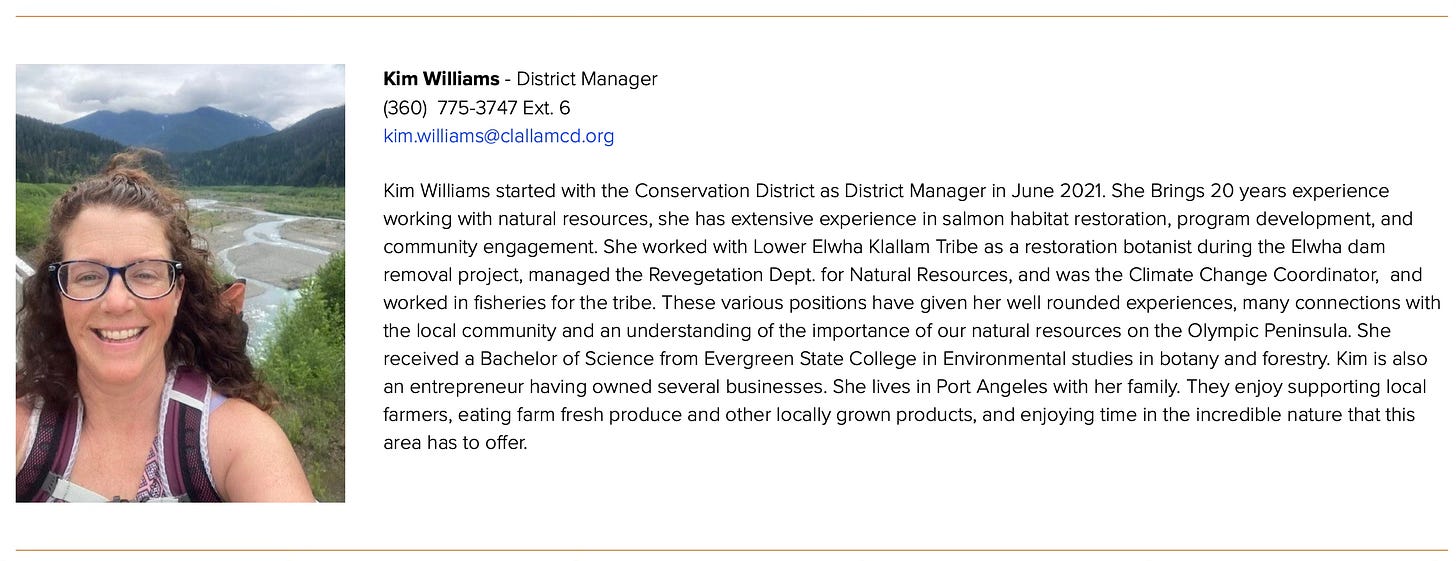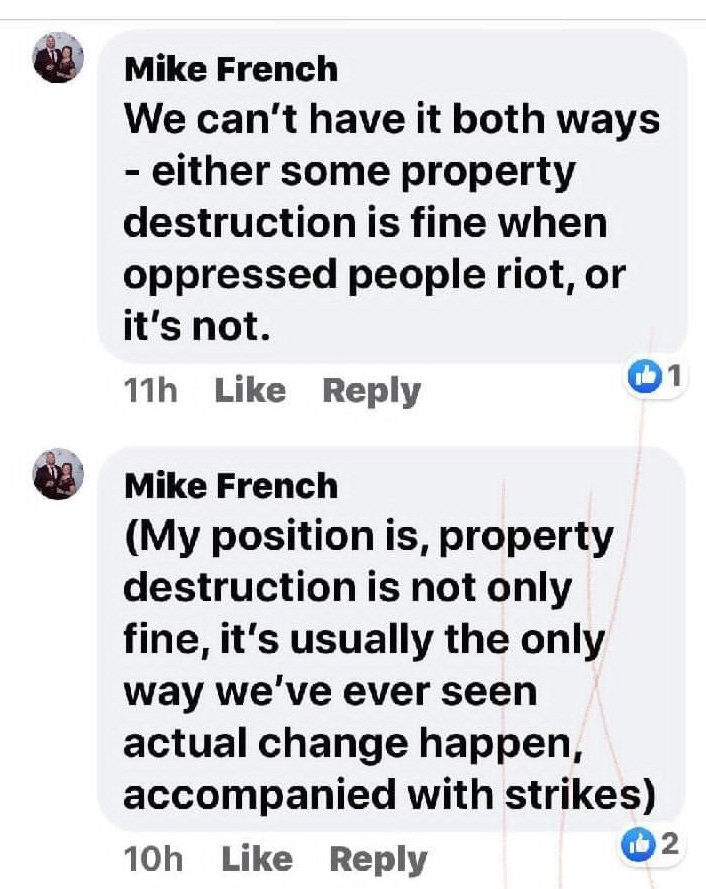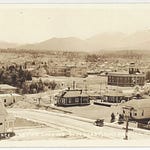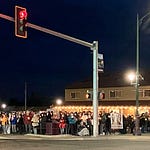Clallam County residents packed Tuesday’s Board of Commissioners meeting to oppose a new $5 parcel fee for the Clallam Conservation District (CCD). The measure will require property owners to pay roughly $2 million over the next 10 years, but tribal parcels in federal trust will be exempt. While the commissioners emphasize translating residents’ desires into action, many are left questioning whether they’re truly listening.
The meeting drew a full house, with most speakers against the proposal. Board Chair Commissioner Mike French opened by cutting public comment time from three minutes to two.
District 3 resident Jake Seegers announced that his petition against the fee had gathered 1,032 signatures — more than the 934 votes cast in the most recent CCD election, which reelected CCD Supervisor Christy Cox who attended the meeting wearing an “America Needs Lesbian Farmers” shirt.
Seegers accused the CCD of misleading the public about finances, pointing out grant funding that contradicted claims of shortfalls. He highlighted bookkeeping errors totaling hundreds of thousands of dollars, concluding that commissioners had failed in their duty to scrutinize financials and instead shifted accountability onto taxpayers.
“They feel their personal ideology justifies and deserves it,” Seegers said, “and up until this point the commissioners have refused to tell the district ‘no.’”
Public pushback
Speakers urged commissioners to delay the decision for a year, allowing CCD to operate within its existing grants and demonstrating accountability. Several emphasized the long-term stakes: $2 million over a decade, not just “five bucks.” Others warned that the Auditor’s Office — already strained by cuts — could not realistically process low-income or senior exemptions.
Some accused CCD of relying on fear instead of facts. One noted that commissioners had already driven the county budget into deficit and were now bypassing the voters by approving fees themselves.
CCD’s defense — and contradictions
CCD Director Kim Williams, Supervisor Cox, and staff addressed the commissioner's questions. Williams cited clean state audits as proof of accountability. However, audits do not measure the accuracy of financial assumptions or program promises.
Williams admitted CCD often lacks reliable performance data, saying they “rely on farmers” to provide it and that results are not scientific research. Regarding finances, she insisted the district operates within an elaborate system of “checks and balances.”
Commissioner Randy Johnson, who admitted to having made up his mind before public comment, defended CCD as a resource for small farms but acknowledged data gaps. Commissioner Mark Ozias backed the fee, citing the county’s comprehensive plan — despite ignoring the same plan in past decisions, such as efforts to close Towne Road and prevent a gravel pit from reopening near his home.
Commissioner Ozias suggested testimonials could help showcase CCD’s success, perhaps from farmers who received costly subsidies, including six-figure payments for not irrigating crops.
French’s surprise defection
Commissioner French gave a meandering response, weaving between pollution, shellfish, and Port Angeles creeks before announcing he would not support the fee—a move that shocked many in attendance. With reelection looming next year, observers saw the decision less as a principled stand and more as a political calculation: he can now claim he “sided with the people,” while the measure still passed 2–1.
As Dungeness resident Kärin Cummins put it, “In reality, he wants it because we know he rubber stamps everything.”
Commissioner French praised the public commenters and those who signed the petition.
“I think now more than ever we need to model positive political discourse,” French said.
The line struck some as ironic, coming from the same politician who once declared, “Property destruction is not only fine, it’s usually the only way we’ve ever seen actual change happen.”
Commissioners’ forum canceled
The meeting was scheduled to conclude with a Commissioners’ Forum, a rare chance for the public to directly question their elected leaders. But because the meeting ran long, the forum was canceled.
When asked if it could be rescheduled, commissioners pointed to the regular “fourth Tuesday” schedule — effectively punting until next month. The boardroom was not booked for any other use, meaning commissioners could have taken questions, but chose not to. To many in the audience, it looked like the agenda had been deliberately packed to run out the clock.
Equity in question
The outcome left many residents asking why 98 signatures were enough to stop a multi-million-dollar Towne Road project, but ten times that amount could not stop a $5 fee.
Equity, it seems, will not extend to low-income property owners who will pay the fee — or to rural residents in French’s District 3, who will shoulder costs while seeing few benefits, as most of the focus is in the Dungeness area.
Mission statements vs. reality
Commissioners claim their mission is to:
Translate residents’ desires into action
Provide exemplary public service
But Tuesday’s meeting made one thing painfully clear: those words are little more than slogans. Residents brought data, signatures, and testimony — and were met with indifference, excuses, and political gamesmanship.
And with November’s ballot already asking voters to approve new taxes, commissioners have sent a clear message: metrics and budgets matter less than narratives and political cover.
In the end, $5 per parcel may not be the outcome many had hoped for. But it is a modest price to learn the truth — that our elected leaders don’t care what we think, and their lofty mission statements aren’t worth the paper they’re printed on.














